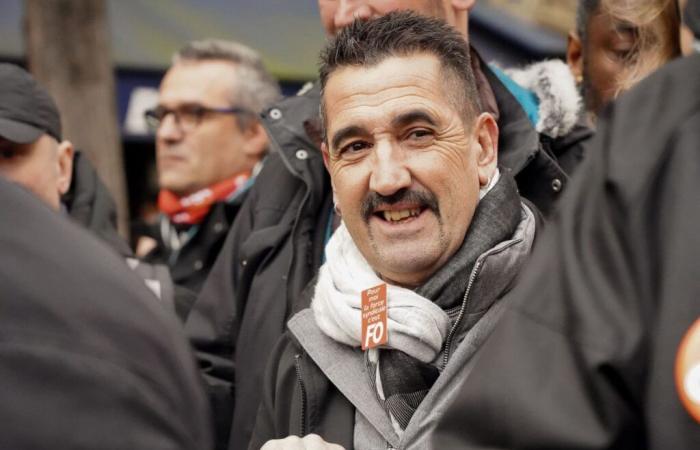Consultations are going well in Matignon around social issues. FO, which like all unions is calling for the repeal of the 2023 pension reform, was received on Thursday by Prime Minister François Bayrou, in particular to discuss this very sensitive issue and the increase in the retirement age.
At the end of this meeting, Frédéric Souillot, general secretary of FO, estimated that“there is no financial balance” in the 2023 pension reform, in particular because “still today, 50% of those who withdraw their pension are no longer employed, but either on unemployment insurance or on occupational illness, and 18% of them are on RSA”.
As a result, the trade unionist called for “talk about the employment of 55-64 year olds” and requested the transposition into law of the agreement on the employment of seniors and progressive retirement signed between social partners last November. He nevertheless considered that the government was taking “getting things right”.
For his part, François Bayrou confirmed that he wanted to open consultations on pension reform without “no taboo”including on the legal age of departure according to comments reported by the number one of the CFDT, Marylise Léon.
For the CFE-CGC, the dialogue “starts badly”
François Hommeril, president of the CFE-CGC, judged that the dialogue initiated by François Bayrou with the social partners “starts off badly” regarding pensions. At the end of his interview with the head of government, he criticized the tenant of Matignon for “think globally, as if there were only one system” retirement between the private and public sectors, “which is not a pay-as-you-go system”.
According to the official, the Prime Minister considers that “ It is not up to the State to pay the cost, ultimately, of the civil servants’ regime.” However, for the union leader, it is impossible to “treat in the same way the question of the Social Security regime, Agirc-Arrco (supplementary pensions) and the various separate regimes”. He recalled that “the question is linked to the necessary commitment of the State to pay the pensions of retired civil servants”.
-In December 2022, while he was High Commissioner for Planning, François Bayrou wrote a note affirming that “for their public functions, the State, local authorities and hospitals assume contributions on average almost three times higher than for employers in the rest of the French economy”.
The PS and LFI divided on political strategy
On the political level, the first secretary of the Socialist Party (PS), Olivier Faure, is trying to obtain the suspension of the pension reform in exchange for an absence of a motion of censure. This strategy could allow a symbolic victory for the left, but complicates its relations with La France insoumise (LFI), which has already announced a motion of censure after François Bayrou’s general policy declaration on January 14.
The leader of LFI, Jean-Luc Mélenchon, strongly criticized this negotiation, denouncing on forfeiture » and one “servility” socialist, environmentalist and communist representatives. LFI also accuses these formations of “denials” in relation to the program of the New Popular Front (NFP). The communists and ecologists demand, as a prerequisite for any agreement, a repeal or suspension of the reform.
“Given the discussions we have had at this stage, we have no reason not to vote for censure,” declared Cyrielle Chatelain, leader of the environmentalist deputies, during her party’s parliamentary days in Rennes. According to her, the abandonment of the reform is “a necessary condition if this government does not want to fall, but it is not a sufficient gesture.”






